DNA reveals the past and future of coral reefs
New DNA techniques are being used to understand how coral reacted to the end of the last ice age in order to better predict how they will cope with current changes to the climate. James Cook Univer

From 2005 to 2022, the main node of the ARC Centre of Excellence for Coral Reef Studies was headquartered at James Cook University in Townsville, Queensland (Australia)







Program Leaders: Professor Graeme Cumming, Professor John Pandolfi, and A/Prof Alana Grech
This multi-disciplinary program brings together leading ecologists, evolutionary biologists, geneticists, oceanographers and palaeontologists to examine the multi-scale dynamics of reefs, from population dynamics to macroevolution.
Historical Ecology, Palaeontology and Shifting Baselines – Examines the historical transition from pristine ecosystems to socio-ecological systems of today. It aims to improve knowledge of how the resilience of coastal and marine ecosystems evolves and its response to human impact.
Regime-Shifts and Resilience – Aims to increase knowledge of the dynamics and resilience of ecosystems and to incorporate these findings into coral reef management. Research focuses on quantifying the effects of multiple drivers of change on critical feedbacks that stabilise or destabilise ecosystems, generating threshold dynamics, hysteresis and alternate stable states.
Connectivity and Resilience – Examines aspects of connectivity at local to global scales including the spread of disease, introduction of new species and pests and the social impacts of human connectivity. We also explore the critical role of larval connectivity between meta-populations or meta-communities in promoting resilience and recovery of depleted local populations.
Macroecology, Ecosystem Functions and Biogeography – Quantifies the level of functional diversity and redundancy in coral reef assemblages. In tandem with Program 3 we will model and assess the effect of changes in biodiversity on ecosystem function along biogeographic and latitudinal gradients. We will also focus on how management practices impact on ecosystem dynamics.

Graeme S. Cumming
Professor; Centre Director; Coral Reef Research Leader and Program 2 Leader
James Cook University

John Pandolfi
Professor, Chief Investigator and Program 2 Leader
University of Queensland
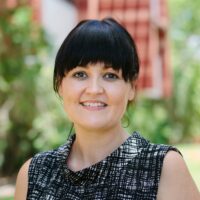
Alana Grech
Associate Professor; Assistant Director; Program 2 Leader
James Cook University

Andrew Baird
Professorial Research Fellow and Chief Investigator
James Cook University

David Bellwood
Distinguished Professor and Chief Investigator
James Cook University
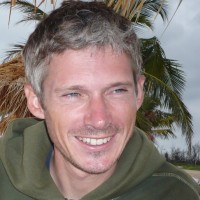
Yves-Marie Bozec
Postdoctoral Research Fellow
University of Queensland
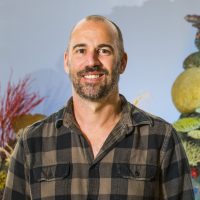
Tom Bridge
Senior Research Fellow; Senior Curator
James Cook University and Queensland Museum Network

Severine Choukroun
Research Associate
James Cook University

Peter Cowman
Senior Research Fellow in Ecosystem Dynamics
James Cook University

April Hall (née Boaden)
Advance Queensland Postdoctoral Research Fellow
James Cook University

Hugo B. Harrison
ARC and AIMS Joint Research Fellow
James Cook University
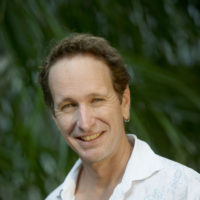
Andrew Hoey
Professorial Research Fellow
James Cook University
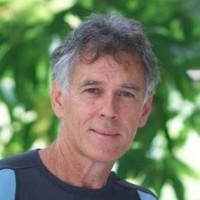
Geoff P. Jones
Professor and Chief Investigator
James Cook University
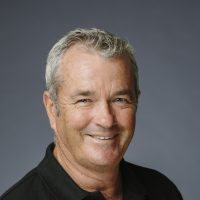
Mike Kingsford
Professor and Chief Investigator
James Cook University

Ryan Lowe
Professor, Chief Investigator and Program 3 Leader
University of Western Australia

Peter Mumby
Professor and Chief Investigator
University of Queensland
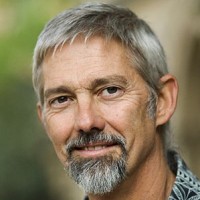
Stephen Palumbi
Professor and Partner Investigator
Hopkins Marine Station, Stanford University
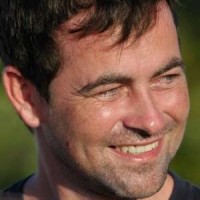
Serge Planes
Partner Investigator
University of Perpignan, France

Morgan Pratchett
Professorial Research Fellow and Chief Investigator
James Cook University

Garry Russ
Professor and Chief Investigator
James Cook University
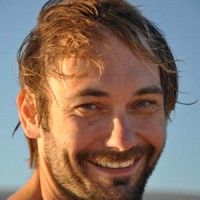
Greg Torda
Senior Research Fellow (DECRA)
James Cook University

Sue-Ann Watson
Senior Research Fellow
James Cook University
Members of this program work across a range of themes (see introduction). Some are also part of individual research groups (below).
Marine Palaeoecology Lab, led by John Pandolfi:
 In the marine Palaeoecology Lab we conduct investigations into the effects of natural and anthropogenic climate change, as well as other anthropogenic stressors, on tropical and sub-tropical reefs in a historical context. Coral reefs are experiencing increasing degradations, but systematic studies of these amazing environments are only recent. To really know how these environments looked like before human influence we need to be creative in the use of tools that give us an insight into the recent past (hundreds to thousands of years) as well as the deep past (hundreds of thousands to millions of years). Historical ecology, along with fossil records and genetic studies allow us to establish appropriate baselines for the study and management of marine ecosystems.
In the marine Palaeoecology Lab we conduct investigations into the effects of natural and anthropogenic climate change, as well as other anthropogenic stressors, on tropical and sub-tropical reefs in a historical context. Coral reefs are experiencing increasing degradations, but systematic studies of these amazing environments are only recent. To really know how these environments looked like before human influence we need to be creative in the use of tools that give us an insight into the recent past (hundreds to thousands of years) as well as the deep past (hundreds of thousands to millions of years). Historical ecology, along with fossil records and genetic studies allow us to establish appropriate baselines for the study and management of marine ecosystems.
The Bellwood Lab, led by David Bellwood:
 Our lab focuses on reef fish ecology, ecosystem function and resilience. Our approach is eclectic, ranging from molecular phylogenetics and global biogeography to functional morphology and behavioural ecology. Yet we are all united by a single focus – to understand the role of biodiversity in ecosystem function and to find novel solutions to the problems faced by coral reefs. Our ultimate goal is to understand how coral reefs work, to identify the critical roles of fishes in coral reef ecosystems, and to develop new approaches to reef management that will include people as part of the solution.
Our lab focuses on reef fish ecology, ecosystem function and resilience. Our approach is eclectic, ranging from molecular phylogenetics and global biogeography to functional morphology and behavioural ecology. Yet we are all united by a single focus – to understand the role of biodiversity in ecosystem function and to find novel solutions to the problems faced by coral reefs. Our ultimate goal is to understand how coral reefs work, to identify the critical roles of fishes in coral reef ecosystems, and to develop new approaches to reef management that will include people as part of the solution.
Reef Fish Ecology and Climate Change, led by Philip Munday
 Professor Munday has broad interests in the population, community and behavioural ecology of reef fishes. His research group focuses on understanding and predicting the impacts that climate change and ocean acidification will have on populations and communities of marine fishes, both directly through changes in the physical environment and indirectly through effects on coral reef habitat. Using a range of laboratory and field experiments he is investigating the effects of climate change and ocean acidification on reef fish populations and testing their capacity for acclimation and adaptation to a rapidly changing environment. A major research focus is understanding how exposure to higher temperatures and carbon dioxide levels in one generation affects the ability of subsequent generations of fish to tolerate these conditions (transgenerational acclimation).
Professor Munday has broad interests in the population, community and behavioural ecology of reef fishes. His research group focuses on understanding and predicting the impacts that climate change and ocean acidification will have on populations and communities of marine fishes, both directly through changes in the physical environment and indirectly through effects on coral reef habitat. Using a range of laboratory and field experiments he is investigating the effects of climate change and ocean acidification on reef fish populations and testing their capacity for acclimation and adaptation to a rapidly changing environment. A major research focus is understanding how exposure to higher temperatures and carbon dioxide levels in one generation affects the ability of subsequent generations of fish to tolerate these conditions (transgenerational acclimation).
Marine Spatial Ecology Lab, led by Peter Mumby
 Our research focuses on delivering science to improve the management of coral reefs. We carry out empirical ecological studies at scales ranging from millimetres (algal patch dynamics) to thousands of kilometres (gene flow in Caribbean corals) in an effort to plug gaps in our understanding of reef processes. Empirical data are then used to develop ecosystem models from which we can investigate the effectiveness of conservation measures in mitigating disturbance on reefs including climate change. Lastly, we combine the ecological models with remotely-sensed data to allow spatial conservation planning such as marine reserve design.
Our research focuses on delivering science to improve the management of coral reefs. We carry out empirical ecological studies at scales ranging from millimetres (algal patch dynamics) to thousands of kilometres (gene flow in Caribbean corals) in an effort to plug gaps in our understanding of reef processes. Empirical data are then used to develop ecosystem models from which we can investigate the effectiveness of conservation measures in mitigating disturbance on reefs including climate change. Lastly, we combine the ecological models with remotely-sensed data to allow spatial conservation planning such as marine reserve design.
Coral Reef Ecology Lab, led by Andrew Baird, Andrew Hoey, and Morgan Pratchett
 Coral reef ecosystems are ecologically and economically important, but are also being rapidly degraded throughout the world. Pratchett, Hoey and Baird work together (along with a large group of graduate students and early career researchers) to explore the dynamics of reef organisms and interactions among key components of reef ecosystems. This research is fundamental to developing effective management strategies to halt and reverse global degradation of reef ecosystems.
Coral reef ecosystems are ecologically and economically important, but are also being rapidly degraded throughout the world. Pratchett, Hoey and Baird work together (along with a large group of graduate students and early career researchers) to explore the dynamics of reef organisms and interactions among key components of reef ecosystems. This research is fundamental to developing effective management strategies to halt and reverse global degradation of reef ecosystems.
New DNA techniques are being used to understand how coral reacted to the end of the last ice age in order to better predict how they will cope with current changes to the climate. James Cook Univer
A new study on the effects of climate change in five tropical countries has found fisheries are in more trouble than agriculture, and poor people are in the most danger. Distinguished Profess
James Cook University researchers have found brightly coloured fish are becoming increasingly rare as coral declines, with the phenomenon likely to get worse in the future. Christopher Hemingson, a
Researchers working with stakeholders in the Great Barrier Reef region have come up with ideas on how groups responsible for looking after the reef can operate more effectively when the next bleaching
Abstract: As marine species adapt to climate change, their heat tolerance will likely be under strong selection. Individual variation in heat tolerance and its heritability underpin the potential fo
Abstract: The Reef Ecology Lab in KAUST’s Red Sea Research Center explores many aspects of movement ecology of marine organisms, ranging from adult migrations to intergenerational larval dispersal
Abstract: Macroalgal meadows are a prominent, yet often maligned component of the tropical seascape. Our work at Ningaloo reef in WA demonstrate that canopy forming macroalgae provide habitat for ad
Abstract: Sharks are generally perceived as strong and fearsome animals. With fossils dating back at least 420 million years, sharks are not only majestic top predators but they also outlived dinosa
Abstract: Connectivity plays a vital role in many ecosystems through its effects on fundamental ecological and evolutionary processes. Its consequences for populations and metapopulations have been
Abstract: Evolution of many eukaryotic organisms is affected by interactions with microbes. Microbial symbioses can ultimately reflect host’s diet, habitat range, and even body shape. However, how
Abstract: The past few years have seen unprecedented coral bleaching and mortality on the Great Barrier Reef (GBR) but the consequences of this on biodiversity are not yet known. This talk will expl